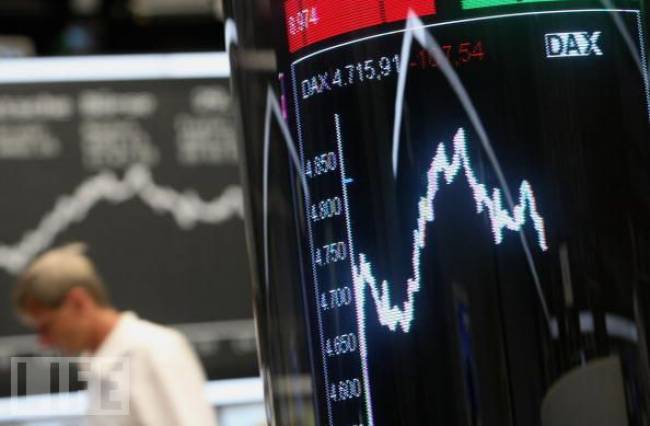By Marion Trimborn and Takis Tsafos
Athens- Taking over the European Union‘s rotating presidency will allow crisis-battered Greece to boost its influence in the bloc. But it is also being used by the country as an opportunity to polish up its economic image.
Prime Minister Antonis Samaras set the tone during his New Year‘s address, broadcast two days before the start of the six-month EU presidency on January 1.
"In 2014, Greece will return to the [financial] markets and start to be a normal country again," he said.
The statement has raised eyebrows in Brussels, where speculation has been rampant that the country will actually need a third bailout.
That has not stopped Greek officials from insisting again and again that they do not want any more international financial aid.
Their trump card is that Greece should achieve a primary surplus – excluding debt repayment costs – this year. They argue that this fulfills the conditions that eurozone finance ministers had set in November 2012 to grant Athens more support.
A third bailout package is not an attractive option for Greece, not least because of the austerity and reform requirements that come with it.
Athens does not want a further writedown on its debt either, Finance Minister Yannis Stournaras insisted Wednesday. Such a controversial option would be a difficult sell to parliaments in other eurozone countries, particularly Germany.
Greece instead is hoping for debt relief, such as lower interest rates and longer loan maturities for existing loans. Its government believes that this would make the Greek debt sustainable, thus allowing Athens to regain access to market financing.
Guntram Wolff, the director of the Bruegel think tank in Brussels, is sceptical of the idea that Greece may soon be able to forego EU financial help.
"This assumption is too optimistic," he told dpa, noting that debt levels and growth prospects, not just the deficit, are key. "There, it does not look so rosy in Greece."
ING bank economist Carsten Brzeski is even more blunt in his assessment of Greece‘s plans: "This is pure wishful thinking."
The situation in the country remains challenging. Its economy, which shrank by a massive 7.1 per cent in 2011 and by 6.4 per cent in 2012, is expected to slightly grow this year for the first time since 2008. But its mountain of debt remains crushingly high.
The EU estimates that it reached 176 per cent of gross domestic product in 2013 – a level at which achieving market trust and financing is widely considered to be unrealistic.
And if Greece cannot return to the financial markets by the end of 2014, then "a new aid package will probably be needed," Commerzbank chief economist Joerg Kraemer predicts.
According to Greek Foreign Minister Evangelos Venizelos, such a scenario would have grave political consequences. A new bailout could buttress radical or eurosceptic political forces – maybe even bring them to power in Greece, he said this week.
The country‘s governing coalition is desperate for good news. But its EU partners may be wary of tackling the unpopular issue of Greek debt ahead of May‘s European elections, which are already expected to deliver gains for eurosceptic and far-right parties.
"The poker has started," one EU diplomat said, speaking on condition of anonymity.
April 23 is a key date. On that day, the EU‘s statistics agency, Eurostat, will release its data on government deficits – and clarify whether Greece has in fact achieved a primary surplus.
In Athens, optimism prevails.
"Imagine what a success it would be for Europe if Portugal and Greece could return to the markets together at the end of the year," a high-ranking official in the Greek Finance Ministry told dpa on Wednesday, speaking on condition of anonymity.
It is a "bet that Athens has to win," Competitiveness Minister Konstantinos Chatzidakis said on Greek television.
So far, Ireland is the only eurozone country to have exited a full bailout programme. Spain is in the process of leaving behind the bailout that it received for its banking sector.









